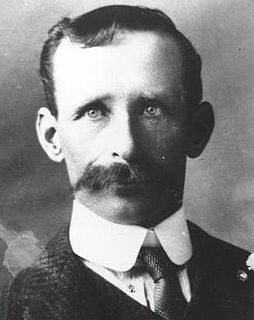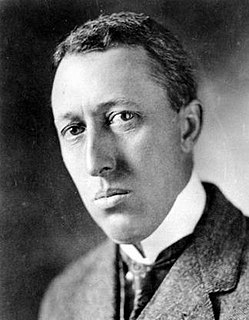The second of two 1896 municipal elections was held December 14, 1896. This was the first election to take place on the second Monday of December instead of the second Monday in January. The election was to elect the town council, five trustees for the public school division and four trustees for the separate school division.
The 1897 municipal election was held December 13, 1897. This was the last election to elect a full town council for a one-year term, as the 1898 election was conducted under a staggered system. The election was to elect the town council, five trustees for the public school division and four trustees for the separate school division.
The 1900 municipal election was held December 10, 1900 for the purpose of electing a mayor and three aldermen to sit on the Edmonton Town Council, as well as five public school trustees and four separate school trustees.
The 1903 municipal election was held December 14, 1903 for the purpose of electing a mayor and three aldermen to sit on the Edmonton Town Council, as well as five public school trustees and five separate school trustees. There were six aldermanic positions on the council at the time, but three of them were already filled: Arthur Cushing, Daniel Fraser, and James Ross had been elected for two-year terms in 1902, and were still in office.
The 1904 municipal election was held December 12, 1904 for the purpose of electing a mayor and eight aldermen to sit on the Edmonton City Council, as well as five public school trustees and five separate school trustees. It was Edmonton's first election as a city, and the first in which there were eight aldermanic positions instead of six. Because of this new composition of city council, all aldermanic positions were elected instead of only half as had been the case in previous elections and would again be the case in subsequent elections. Accordingly, even though Edmund Grierson, Charles May, and Joseph Henri Picard had been elected to two-year terms in the 1903 election, their terms were truncated. May and Picard decided to stand for re-election, while Grierson did not.
The 1905 municipal election was held December 11, 1905 for the purpose of electing a mayor and four aldermen to sit on the Edmonton City Council, as well as five public school trustees and five separate school trustees. There were eight aldermen on city council, but four of the positions were already filled: John R. Boyle and Thomas Bellamy were both elected to two-year terms in 1904 and were still in office, while Robert Mays and David Latta - who had been appointed to replace the resigned Charles May and Kenneth McLeod, respectively - were also still in office.
The 1906 municipal election was held December 10, 1906 for the purpose of electing a mayor and four aldermen to sit on the Edmonton City Council, as well as five public school trustees and six separate school trustees. There were eight aldermen on city council, but three of the positions were already filled: Robert Manson, Joseph Henri Picard, and Samuel Smith had been elected to two-year terms in 1905, and were still in office. William Antrobus Griesbach had also been elected to a two-year term, but resigned to run for mayor. Accordingly, the fifth place aldermanic candidate in the 1906 election - Morton MacAuley - was elected only to serve out the remaining year of Griesbach's term.
The 1908 municipal election was held December 14, 1908 for the purpose of electing a mayor and six aldermen to sit on the Edmonton City Council, as well as three public school trustees and five separate school trustees. There were also five proposed bylaws put to a vote of the electorate concurrently with the election.
The 1909 municipal election was held December 13, 1909 for the purpose of electing a mayor and four aldermen to sit on the Edmonton City Council, as well as three public school trustees and five separate school trustees. There were also eight proposed bylaws put to a vote of the electorate concurrently with the election.
The 1910 municipal election was held December 12, 1910 for the purpose of electing a mayor and five aldermen to sit on the Edmonton City Council, as well as three public school trustees and five separate school trustees. There were also four proposed bylaws put to a vote of the electorate concurrently with the election.
The second of two 1912 municipal elections was held December 9, 1912 to elect a mayor and five aldermen to sit on Edmonton City Council and three trustees to sit on each of the public and separate school boards.
The 1913 municipal election was held December 8, 1913 to elect a mayor and five aldermen to sit on Edmonton City Council, trustees to sit on the public school board, and four trustees to sit on the separate school board.
The 1915 municipal election was held December 13, 1915 to elect a mayor and five aldermen to sit on Edmonton City Council and four trustees to sit on each of the public and separate school boards.
The 1917 municipal election was held December 10, 1917, to elect a mayor and seven aldermen to sit on Edmonton City Council and four trustees to sit on each of the public and separate school boards. There were also two plebiscite questions asked.
The 1919 municipal election was held December 8, 1919 to elect a mayor and five aldermen to sit on Edmonton City Council and four trustees to sit on the public school board. T P Malone, Paul Janvrin, T S Magee, and Joseph Henri Picard were acclaimed to two-year terms on the separate school board. In the election's only plebiscite, Edmontonians rejected a proposal to pay their aldermen.
The 1921 municipal election was held December 12, 1921 to elect a mayor and seven aldermen to sit on Edmonton City Council and four trustees to sit on the public school board. F A French, Paul Jenvrin, Thomas Magee, and Joseph Henri Picard were acclaimed to two-year terms on the separate school board.
The 1922 municipal election was held December 11, 1922 to elect a mayor and six aldermen to sit on Edmonton City Council and three trustees to sit on the public school board. R Crossland, P M Dunne, Joseph Gariépy, and J J Murray were acclaimed to two-year terms on the separate school board.
The 1923 municipal election was held December 10, 1923 to elect a mayor and six aldermen to sit on Edmonton City Council and four trustees to sit on the public school board. Robert Crossland, Paul Jenvrin, Thomas Magee, and Joseph Henri Picard were acclaimed to two-year terms on the separate school board.








